World Bee Day 2021
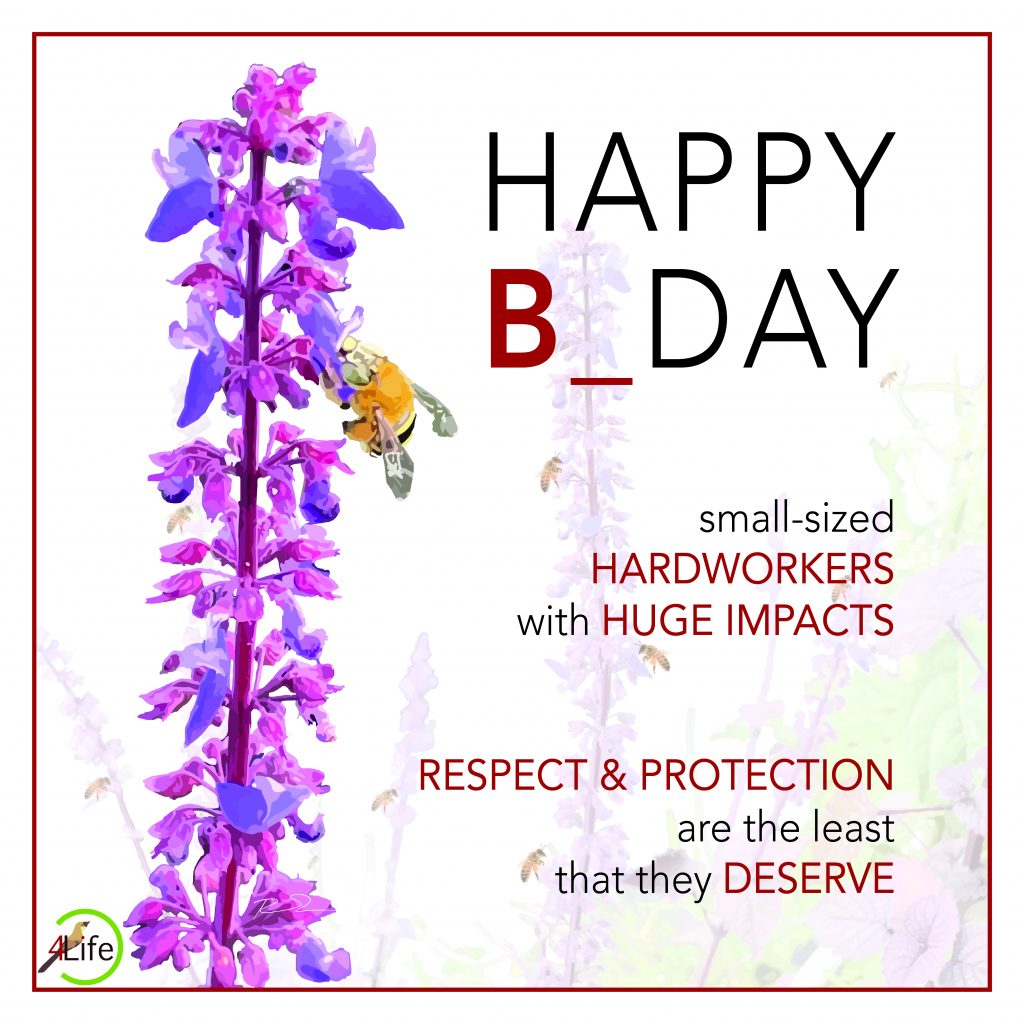
ID
“Lebah itu warnanya kuning, suka bikin madu, tapi aku takut sama perutnya, soalnya ada yang suka nusuknya…” – Nadhifa, 6 tahun –
Siapa yang tidak tahu lebah? Serangga kecil nan unik pecinta bunga (clade “Anthophila”) anggota Superfamili Apoidea ini ternyata sangat berjasa bagi manusia baik secara langsung maupun tidak langsung. Berbagai macam makanan yang penting bagi manusia tersedia berkat adanya bantuan lebah. Lebah membantu penyerbukan bunga dari berbagai jenis buah dan sayur yang kita makan. Selain itu, lebah juga menghasilkan madu dan turunannya yang terbukti memiliki berbagai macam nutrisi penting bagi kesehatan (Ajibola et al. 2012) sehingga sering diperjualbelikan (Matias et al. 2017).
Sayangnya, kini semakin banyak dilaporkan bahwa populasi lebah liar di alam semakin menurun (Zattara & Aizen 2021). Kehilangan habitat, semakin sedikitnya tanaman berbunga, polusi dan perubahan iklim merupakan beberapa penyebab yang dengan kita sadari ataupun tidak, sebagian besar merupakan akibat dari perbuatan manusia (Matias et al. 2017). Lambat laun, hal ini akan berdampak pada kehidupan manusia akibat hilangnya jasa ekosistem dan ekonomi tak ternilai dari lebah (Biesmeijer et al. 2006). Oleh karena itu, konservasi lebah merupakan hal yang patut kita lakukan, khususnya dengan mengintegrasikan keilmuan multidisiplin dan mengkolaborasikan berbagai pemangku kepentingan terkait (Matias et al. 2017).
EN
Who doesn’t know bees? These unique small-sized hardworker flower-loving insects (clade “Anthophila”) from Superfamily Apoidea are very useful for humans, both directly and indirectly. Various kinds of food are available thanks to their help. Bees help pollinate the flowers of the various types of fruits and vegetables that we eat and produce honey and its derivatives which are proven to have a variety of important health benefits (Ajibola et al. 2012) making them important food commodities for humans (Matias et al. 2017).
Unfortunately, it has been widely reported that natural bee populations have decreased continuously (Zattara & Aizen 2021). Habitat loss, pollution and climate change are some of the causes, most of which are the result of human activities (Matias et al. 2017). Gradually, this will have an impact on human life due to the loss of their valuable ecosystem and economic services (Biesmeijer et al. 2006). It is indeed inevitable for us to conserve the natural/wild bees population, particularly by integrating multidisciplinary sciences and collaborating among various related stakeholders (Matias et al. 2017).
Referensi / References
Ajibola, A., Chamunorwa, J.P. and Erlwanger, K.H., 2012. Nutraceutical values of natural honey and its contribution to human health and wealth. Nutrition & Metabolism, 9(1), pp.1-12.
Biesmeijer, J.C., Roberts, S.P., Reemer, M., Ohlemüller, R., Edwards, M., Peeters, T., Schaffers, A.P., Potts, S.G., Kleukers, R.J.M.C., Thomas, C.D. and Settele, J., 2006. Parallel declines in pollinators and insect-pollinated plants in Britain and the Netherlands. Science, 313(5785), pp.351-354.
Matias, D.M.S., Leventon, J., Rau, A.L., Borgemeister, C. and von Wehrden, H., 2017. A review of ecosystem service benefits from wild bees across social contexts. Ambio, 46(4), pp.456-467.
Zattara, E.E. and Aizen, M.A., 2021. Worldwide occurrence records suggest a global decline in bee species richness. One Earth, 4(1), pp.114-123.

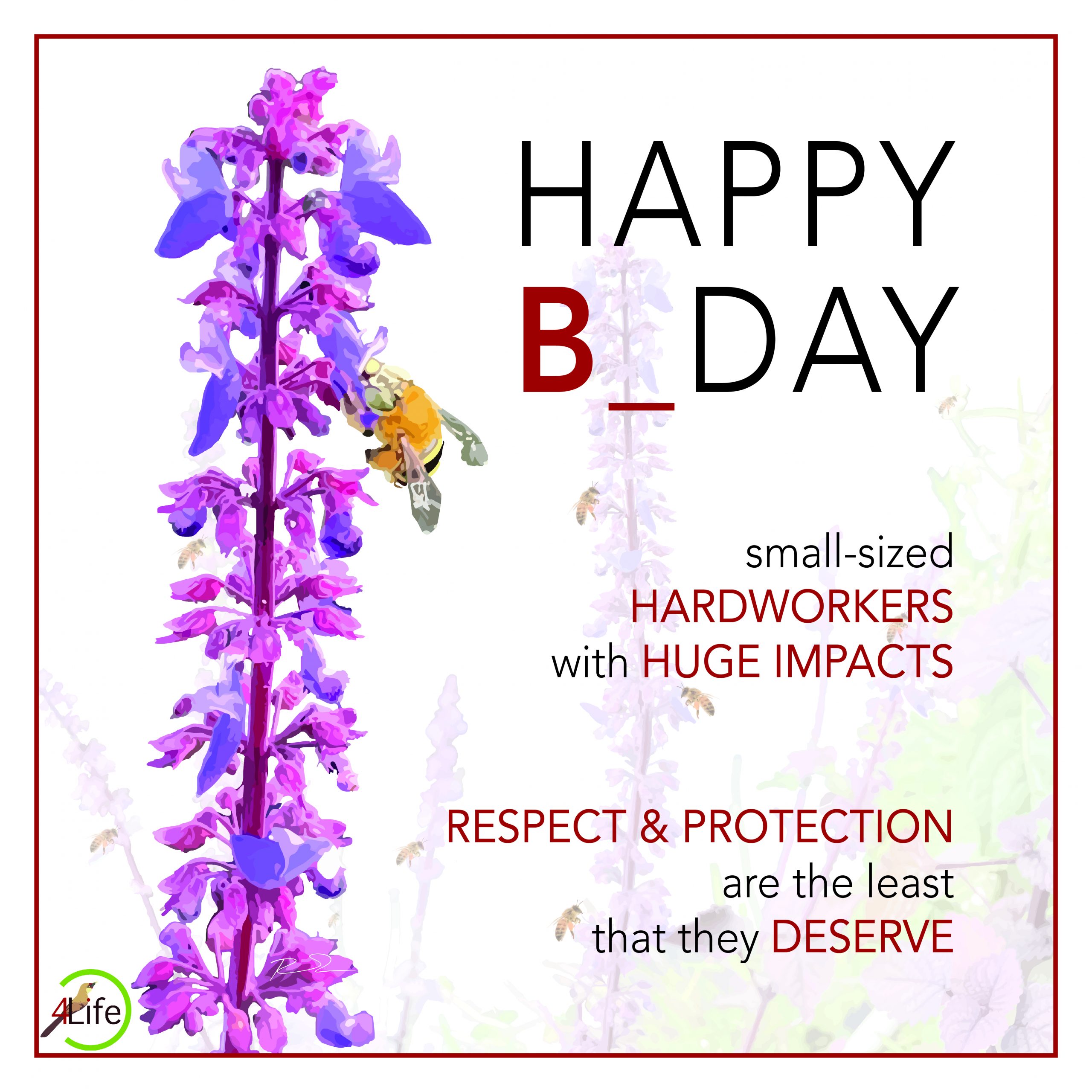
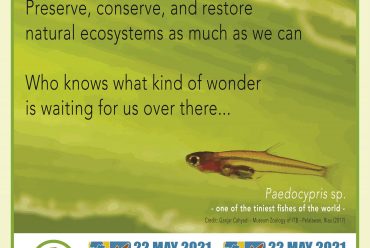
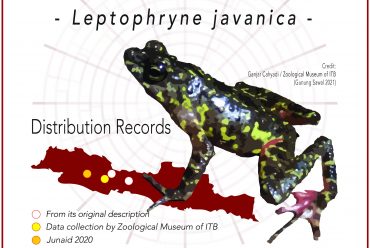
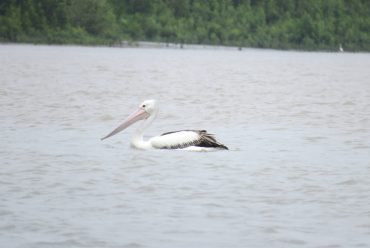
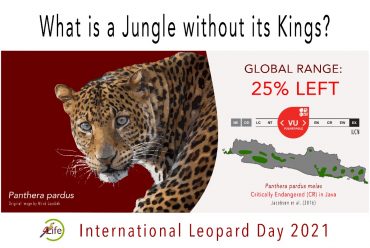
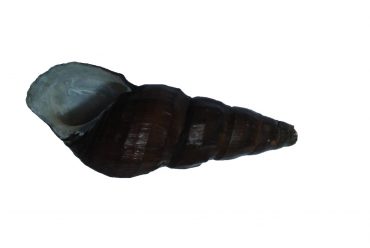
No Comments